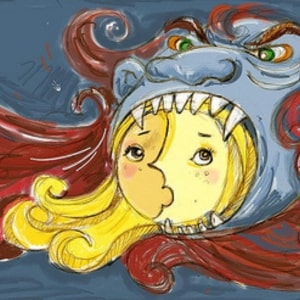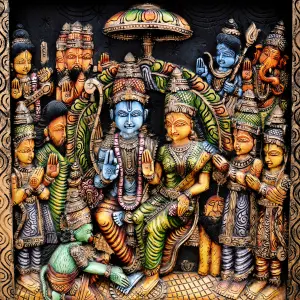In this article, we will explore the 14 types of Pitra Dosh and gain a deeper understanding of this fascinating aspect of Hindu astrology. In the rich tapestry of Hindu beliefs and traditions, the concept of Pitra Dosha holds a significant place. Pitra Dosha, also known as Pitru Dosha, is considered a malefic astrological condition caused by the displeasure of one’s ancestors or forefathers. It is believed that the negative karmic actions or unresolved issues of our ancestors can have a profound impact on our lives.

14 Types of Pitra Dosh
- Pitra Dosha due to Pitru Shrapa: This is the most common type of Pitra Dosha and is believed to occur when one’s ancestors are dissatisfied with their offerings and prayers.
- Pitra Dosha due to Unfulfilled Desires: When the wishes and desires of one’s ancestors remain unfulfilled, it can lead to this type of dosha.
- Pitra Dosha due to Curses: Ancestral curses or unresolved conflicts can result in Pitra Dosha, impacting the well-being of the present generation.
- Pitra Dosha due to Early Death: If any of the ancestors died at a young age or in unfortunate circumstances, it can cause this dosha.
- Pitra Dosha due to Lack of Proper Rituals: When the prescribed rituals and ceremonies for the deceased ancestors are not performed, it can lead to this dosha.
- Pitra Dosha due to Unnatural Deaths: Deaths caused by accidents, suicide, or other unnatural means are believed to contribute to this dosha.
- Pitra Dosha due to Bad Karma: Negative actions or deeds committed by one’s ancestors can lead to a Pitra Dosha affecting their descendants.
- Pitra Dosha due to Disobedience: If one disobeys their parents or neglects their duties towards their ancestors, it can lead to this dosha.
- Pitra Dosha due to Theft: Theft of ancestral property or possessions can invoke the displeasure of the ancestors, causing this dosha.
- Pitra Dosha due to Ill-Treatment of Cows: In Hinduism, cows are revered, and ill-treatment or harm to them can result in this dosha.
- Pitra Dosha due to Unlawful Sexual Relations: Engaging in illicit sexual relationships or infidelity can lead to this dosha.
- Pitra Dosha due to Abortion: The termination of a pregnancy can result in this dosha, especially if it was against the wishes of the ancestors.
- Pitra Dosha due to Lack of Respect for Elders: Disrespecting elders, especially one’s parents and grandparents, can lead to this dosha.
- Pitra Dosha due to Abandonment: Abandoning one’s family or responsibilities towards them can invoke the displeasure of the ancestors, causing this dosha.
Impact of Pitra Dosha
Pitra Dosha is believed to bring various difficulties and challenges into one’s life. These may include health issues, financial problems, relationship conflicts, and obstacles in personal and professional life. It is said to create hurdles in one’s progress and prosperity.
Pitra Dosh Remedies
To mitigate the effects of Pitra Dosha, there are various remedies prescribed in Hindu astrology and spirituality:
- Performing Pitru Tarpanam: This involves offering water and performing rituals to appease one’s ancestors.
- Donating to the Needy: Engaging in charitable acts and donating to the less fortunate is believed to please the ancestors.
- Seeking Blessings of Elders: Respecting and seeking the blessings of one’s living elders can help alleviate the dosha.
- Visiting Ancestral Places: Paying a visit to the birthplace or ancestral village can help in seeking forgiveness and resolving ancestral issues.
- Chanting Mantras: Reciting specific mantras and prayers dedicated to ancestors can be beneficial.
Pitra Dosha is a complex and multifaceted aspect of Hindu astrology, highlighting the intricate connection between the present generation and their forefathers. While it is important to acknowledge and address this dosha, it is equally essential to approach it with a balanced perspective, combining astrological remedies with personal growth and self-improvement. Ultimately, understanding and respecting our ancestors’ wishes can lead to harmony and prosperity in our lives, bridging the gap between the past and the present.






